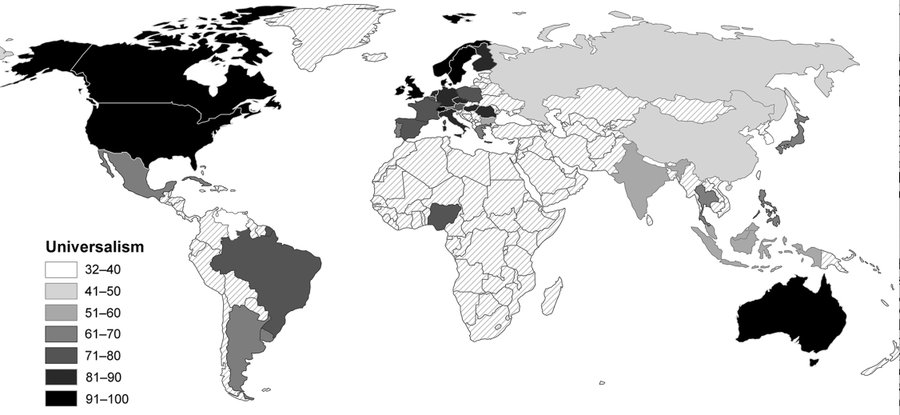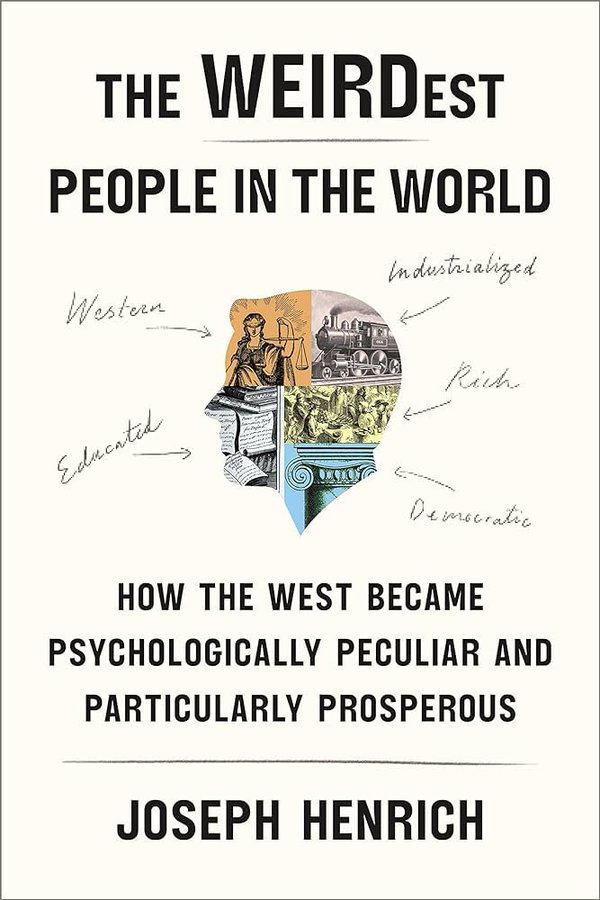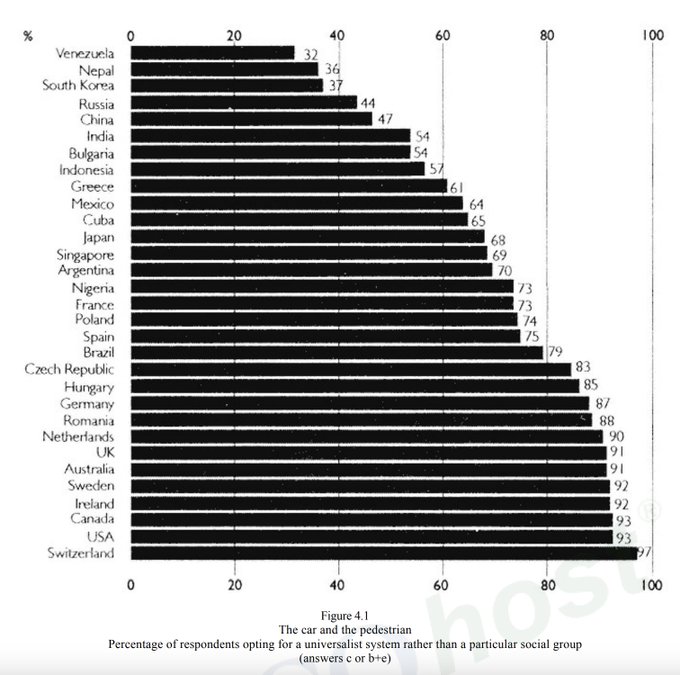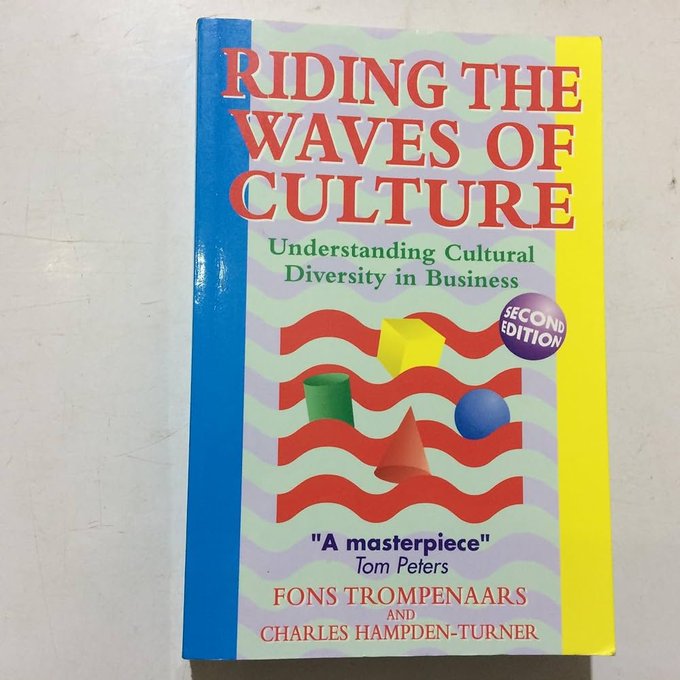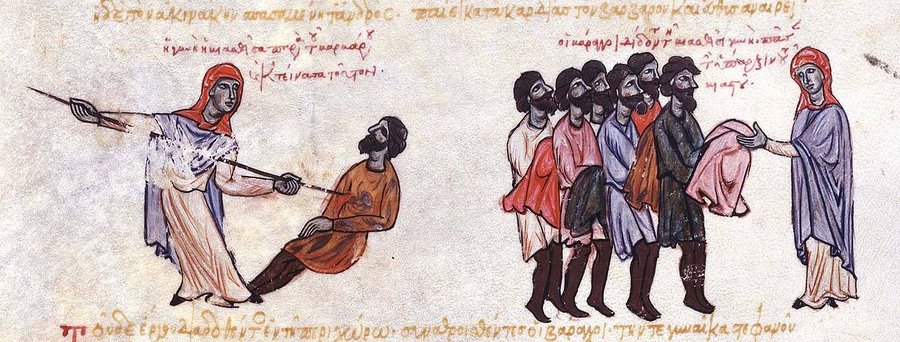(2) Jonathon P Sine on X My Favorite Behavioral Experiment Covered in the Weirdest People in the World “ You Are Riding in a Car Driven by a Close Friend. He Hits a Pedestrian. You Know That He Was Going At
(2) Jonathon P Sine on X: “My favorite behavioral experiment covered in The WEIRDest People in the World: “You are riding in a car driven by a close friend. He hits a pedestrian. You know that he was going at least 35 mph in an area of the city where the maximum allowed speed is 20 mph. There are no… https://t.co/f1yciQ16eL" / X #
Excerpt #
Post
Post #
Conversation #
My favorite behavioral experiment covered in The WEIRDest People in the World: “You are riding in a car driven by a close friend. He hits a pedestrian. You know that he was going at least 35 mph in an area of the city where the maximum allowed speed is 20 mph. There are no witnesses, except for you. His lawyer says that if you testify under oath that he was driving only 20 mph, it may save him from serious legal consequences. Do you think: (a) that your friend has a definite right to expect you to testify (as his close friend), and that you would testify that he was going 20 mph OR (b) that your friend has little or no right to expect you to testify and that you would not falsely testify that he was only going 20 mph?” … Below is an explanation by the author the book, Joseph Henrich, and a graphical depiction of the responses found in the underlying study. “If you picked response (b), you’re probably pretty WEIRD, like people in Canada, Switzerland, and the United States, where more than 90 percent of participants prefer not to testify and don’t think their friend has any right to expect such a thing. This is the universalistic or nonrelational response. By contrast, in Nepal, Venezuela, and South Korea, most people said they’d willingly lie under oath to help a close friend. This is the particularistic or relational response, which captures people’s loyalty to their family and friends.”
[
]( https://twitter.com/JonathonPSine/status/1777904540995506526/photo/1)
… “There’s nothing special about the content of the Passenger’s Dilemma. In places where people would help their friends by testifying, they also report a willingness to (1) give their friends insider company information, (2) lie about a friend’s medical exam to lower his insurance rates, and (3) exaggerate the quality of the cuisine at a friend’s restaurant in a published review. In these places, the “right” answer is to help your friend. People aren’t trying to distinguish themselves as relentlessly honest individuals governed by impartial principles. Instead, they are deeply loyal to their friends and want to cement enduring relationships, even if this involves illegal actions. In these places, being nepotistic is often the morally correct thing to do. By contrast, in WEIRD societies, many people think badly of those who weight family and friends over impartial principles and anonymous criteria like qualifications, merit, or effort.”
[

]( https://twitter.com/thluiz)
[
Pasted image 20240410185401.png
]( https://twitter.com/JonathonPSine/status/1777904995368624623/photo/1)
The underlying study was conducted by Fons Trompenaars and Charles HampdenTurner with data that’s about two decades old now. Marketization may be a major spur to impersonality disposition, and am curious how that’s changed in the intervening period.
[
]( https://twitter.com/JonathonPSine/status/1777908388388585501/photo/1)
[
]( https://twitter.com/JonathonPSine/status/1777908388388585501/photo/2)
It could be said that the universalistic folks are being loyal to their wider society as a whole.
Another favorite for understanding how societies can widely differ, with a greater focus on the business world, is Hofstede’s Cultural Dimensions, and the VSM based on it
I know of situations where the pedestrian wad killed and random strangers helped the driver flee the country. Zero trust in the legal system or police and for good reason.
If I knew his speed, was I telling him to slow down or was I OK with it? This matters.
I think the pedestrian should have looked both ways before crossing.
This is how we got replaced. The top group in this country practices nepotism and looks out for their own with zero hesitation. There is a lesson in this.
I wonder if new immigrants to western countries become more like western whites or if they stay the exact same or even get less universal
universalism: the rot of germanic civilization causing its slow and painful immolation from within.
This has nothing to do with how weird they are and everything to do with willingness to turn on their friends for government good boy points.
The flip side of this behavior is that society is responsive; in a country where the norm is to lie to benefit a friend, such testimony is not given much weight. The real corruption comes in places (like the US), where impartiality usually trumps friendship, testimonies under…
Show more
Seems like the relational response would erode trust in a society because you would expect people to be deceptive or dishonest where there’s a relationship at stake. Reminds me of countries where bribes and corruption are the norm.
you will find this interesting
believing that the friend should expect you to lie under oath and saying that you would are two entirely different things that are conflated here. you should, but your friend shouldn’t expect it of you. where do people like that live?
Wow. This is fascinating because I am definitely one who would answer “a”
It wasn’t without reason the Byzantine emperor hired Swedes An illumination of a scene from the Skylitzes Chronicle, depicting a Thracesian woman killing a Varangian who tried to rape her, whereupon his comrades praised her and gave her his possessions:
[
]( https://twitter.com/OfficialElftown/status/1778151906784714854/photo/1)
